

Unbelievable as it might seem, a free online course could unlock your hidden potential today! With striking new insights, you’ll be amazed by what the perfect course can do for you.
As the digital age transforms our way of learning, it’s becoming crucial to choose courses that not only fit our schedules but also perfectly match our unique skills. Are you ready to discover yours?

Some courses promise transformative self-development, but did you know that an astonishing 70% of learners never find their optimal match? They often miss out on maximizing their true potential by not tapping into their ideal learning path. But that’s not even the wildest part…
Experts reveal shocking stats: engagement levels are 50% higher when learners connect emotionally with their course material! A staggering number, yet many remain clueless about tailoring their educational experiences. But more revelations await as we delve deeper…
The unexpected journey that awaits might just leave even seasoned experts astounded. What happens next shocked even the experts…
Personalizing your learning experience is more impactful than you might think. Studies show that customized content can boost retention rates by up to 60%. It’s not just about learning a skill; it’s about immersion into the subject. Imagine taking a course that speaks directly to your learning style! This is precisely where many platforms are beginning to shine.
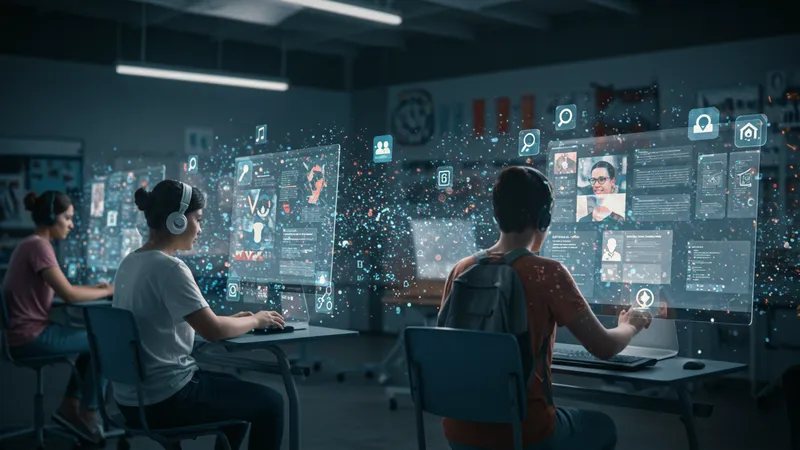
Yet, personalization often raises a puzzling question: why aren’t more learners taking advantage? Many are unaware of features that allow course tailoring to fit their competencies. Despite the surge of ed-tech innovations, there's a notable gap in motivation among learners to explore these options. There’s one more twist…
Delving deeper, successful learners have revealed their secrets: set benchmarks, interactive assignments, and forums. By immersing yourself within a niche community, learning becomes less about what’s forced and more about what’s desired. Such interaction significantly heightens course satisfaction. But there’s another angle to this evolving narrative…
What you read next might change how you see this forever. As platforms evolve, they’re now crafting algorithms that suggest courses based on previous learning habits and achievements. Could this revolutionize how we perceive digital education? Keep reading to unravel new dimensions…
While many claim their learning paths to be free, hidden costs often lurk beneath the surface. The demand for certificates post-course completion can lead to unsuspected expenses. In some cases, learners are met with a “free trial” gimmick, transforming into a recurring monthly fee.

Yet, these costs don’t solely impact your wallet; they also influence educational choices. Learners might unknowingly opt for basic tracks, fearing hidden charges from advanced workshops. Surprisingly, bypassing these pitfall-ridden paths is simpler than expected if one does their homework thoroughly.
A curious trend emerges: strategic enrollment periods often unveil genuine discounts or entirely free access to normally premium content. Institutions like Harvard and MIT sometimes open courses for limited periods, at no cost, during educational weeks or certain anniversaries.
So why isn’t this common knowledge? Many educational platforms still heavily market their paid tiers, overshadowing these glimpses of opportunity. Yet, armed with insider knowledge, potential learners can navigate these waters with newfound cunning. Just wait until you see what’s coming next…
Joining a learning community makes all the difference between surviving a course and thriving through it. Learners report a significant boost in confidence when they participate actively in discussions, breaking the isolation barrier of online learning.

Community-driven learning platforms like Udemy, where forums and group projects are emphasized, show retention rates doubling. This community aspect fosters networking, opening doors for future collaborations.
But the nuance goes beyond mere interaction. Emotional connections with fellow learners motivate participants to complete challenging modules. It’s this camaraderie that propels people forward even when the going gets tough.
What’s next may redefine your approach to learning forever. We’ll explore how communities are breeding grounds for innovation and creativity. Intrigued? The journey doesn’t end here…
Online learners often overlook the significance of their learning preferences. Are you a visual learner or do you thrive on auditory inputs? Knowing this can drastically change your online educational journey.
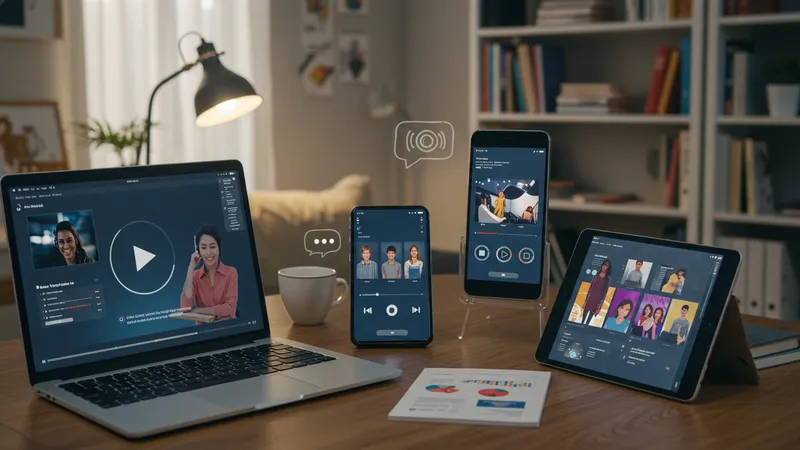
Platforms now tailor content to suit different learning styles: video lectures, podcasts, and interactive visuals cater to diverse student needs, enhancing overall experience dramatically. When platforms employ advanced analytics to match content with personal preferences, course completion rates skyrocket.
The hidden advantage? Discovering your learning style can save time and enhance focus. Students reveal that aligning with preferred materials increases knowledge retention and boosts motivation.
Curious about optimizing your studies with even more precision? Prepare to delve deeper into transformative insights. What we uncover might revolutionize how educators design courses going forward. Stay tuned…
In a surprising twist, course certifications have morphed beyond traditional confines. Digital badges now serve as verifiable proof of skills in the microlearning universe. These badges are rapidly replacing classic certificates within industry fields.

Yet, the most intriguing aspect lies in the real-world recognition of these badges. Renowned companies are increasingly accepting them as proof of competence, signaling a radical shift in recruitment practices.
The upside? The cost reduction! Where full-length degrees might be financially overwhelming, quick micro-courses offer deep dives with less time commitment and significantly lower fees.
Wondering how this trend could alter your career trajectory? What you uncover next might just be the powerful shift in education you’ve been waiting for. Curious yet? Keep reading…
E-learning promises accessibility, but does it deliver universally? Recent studies highlight glaring disparities that still remain. From language barriers to internet speed, not everyone finds e-learning as accessible as promised.
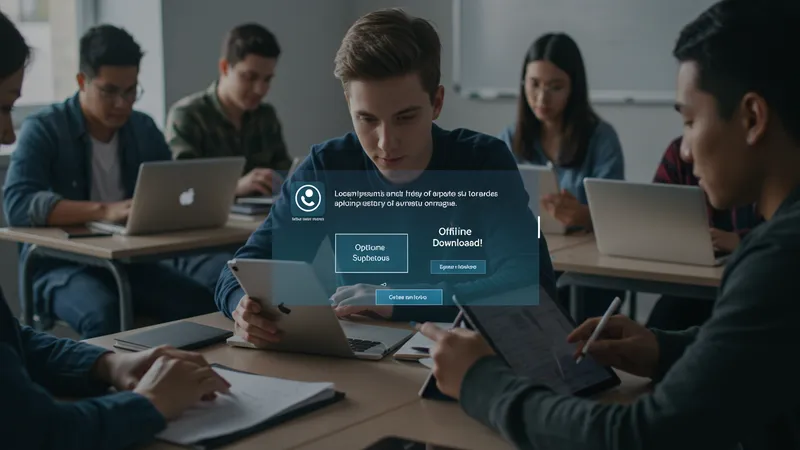
However, innovations are emerging that might soon resolve these inequities. Features such as offline downloads and multi-language subtitles significantly alter the accessibility landscape of online learning platforms.
Moreover, technological advancements in AI-driven translations and adaptive streaming are setting a precedent for a more equal educational ground. Such wonders lower the ‘entry barrier’ for students in regions where resources are scarce.
The next development in this field could redefine global access. Curious how this impacts your learning experience? The expansions in this area might surprise you. Read on to discover more…
The paradox of choice: with thousands of free courses available, navigating through them can lead to decision fatigue. Learners often feel overwhelmed, unable to pinpoint the right course amidst the multitude.

Platforms are leveraging algorithms to counter this saturation. Personalized suggestions based on previous behaviors help streamline selection, ensuring more informed and efficient choices.
Further compounding the issue is the fear of missing out (FOMO), which often traps learners in endless browsing rather than active course participation. Tackling this requires a systematic approach to course curation.
Armed with strategic tools, you can overcome this fatigue. Ready to dive deeper into methods that simplify your educational path? Just imagine the impact it might have on your productivity. Stay with us…
Gamification isn’t merely a buzzword – it’s rapidly becoming a cornerstone of modern learning. By incorporating game elements, courses are making learning engaging and fun.
Modules designed as games appeal to competitive spirits and have shown remarkable improvement in learner engagement. Completing levels or earning points fosters a sense of achievement that traditional teaching sometimes lacks.
Yet, not all platforms have embraced gamification fully. Those that do, like Kahoot, report significant upticks in user interaction and satisfaction. The positive correlation between gaming and learning could shift educational norms radically.
Is the future of learning poised to look more like a video game world? What’s about to unfold might surprise skeptics. Curious about this transformation? The story continues…
AI’s role in education is no longer futuristic. It’s happening now, shaping adaptive learning experiences using complex algorithms to deliver personalized content.
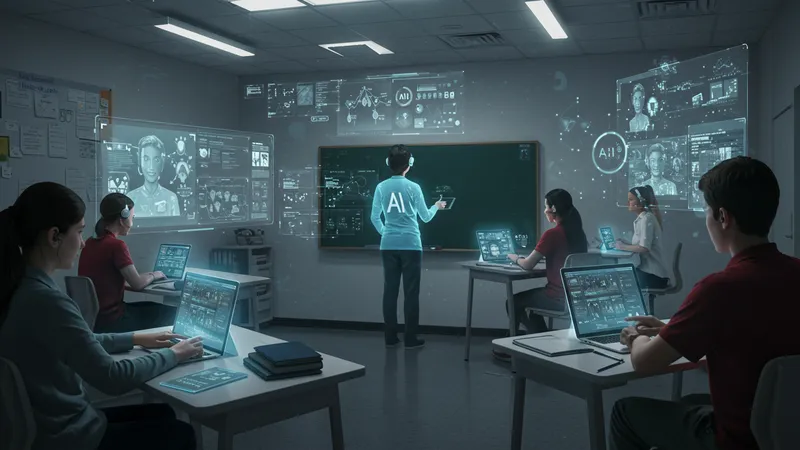
Lead innovators suggest that AI will soon predict struggles before students even notice them, offering tailored solutions in real time. This proactive approach promises a smooth learning journey with fewer disruptions.
The prospect of AI tutors that evolve with learners is on the horizon, further pushing the boundaries of traditional education. Real-time feedback and virtual companions might soon be integrated into everyday learning scenarios.
Could AI redefine the educational dynamic altogether? The potential is enormous, and the shifts that follow could alter the very fabric of learning itself. Are you intrigued by this brave new world of education? Dive further in…
Beyond intellectual growth, free courses contribute to psychological well-being by fostering a sense of achievement. Completing courses enhances self-esteem and promotes a lifelong learning mentality.

Those engaged in networked learning communities report improved mental health, attributing it to the supportive and inclusive nature of online platforms.
Moreover, the act of learning without monetary pressure grants focus solely on content, reducing stress that accompanies traditional learning models. It provides a safe space to explore interests without fear of failure.
But what does this mean for the broader educational spectrum? If learning’s psychological benefits are this profound, imagine the potential societal impacts. Ready to uncover more fascinating insights? Don’t stop here…
Niche markets in e-learning are now evolving faster than ever, addressing specific skill gaps that mainstream courses overlook. Think courses on vintage skills or custom trades thriving online.

These niches offer intimate enclaves for passionate learners, providing a platform for community and innovation. It’s where the curious find their tribe and collaboratively expand their knowledge.
The real charm is the personalized mentorship often accompanying niche courses, providing learners with a unique edge. The depth of expertise shared within these communities often surpasses traditional academic settings.
This step into specialized domains might reshape how small-scale skills are recognized and valued. Are these niche markets the unsung heroes of modern learning? Explore the depths further to determine the true impact…
Online learning is hailed for its environmental benefits by reducing the carbon footprint of traditional educational methods. Fewer commutes to physical locations result in lower emissions and significant energy savings.

Yet, the transition isn’t entirely impact-free. Increased digital consumption raises server loads and energy demands in data centers, occasionally offsetting gains made from reduced physical travel.
This eco-perspective drives innovation – from solar-powered servers to eco-friendly digital infrastructures. Educational platforms are increasingly committing to environmental goals, aligning their models with sustainable practices.
But can these green strategies achieve a net positive impact long-term? The full spectrum of implications is yet to unfold. Keen on discovering more about the role education plays in sustainability? Keep exploring…
Language barriers traditionally hinder global learning, but tech advancements are changing that landscape. With automated translation services, learners worldwide are accessing previously inaccessible content.
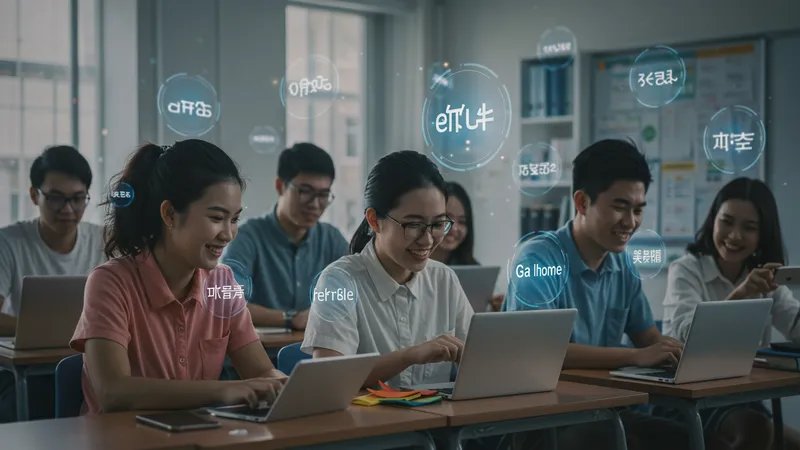
Platforms like Duolingo capitalize on language learning itself, offering free language courses that bridge global divides. This cross-cultural sharing cultivates greater understanding and inclusivity overall.
There’s an unanticipated trend wherein language learners inadvertently become course translators, sharing accessible knowledge with non-native speakers. This grassroots movement democratizes education further.
Are we on the verge of a barrier-free learning environment worldwide? The implications of universally accessible education are profound. Want to grasp the full potential of this shift? The story unfolds further…
As we pull together the threads of this unfolding tapestry, it is clear that free courses are reshaping the educational landscape in profound ways. With accessibility, community, and engagement at their core, these offerings herald a democratization of knowledge that transforms both individual lives and entire societies.
The implications reach beyond personal education; they're poised to redefine workforce dynamics, global collaboration, and ecological stewardship. This journey has peeled back the layers of an intricate world hidden just beneath the surface. If you’ve found this guide insightful, it's time to share it with others, ignite conversations, and explore your own learning path. The future is bountifully rich with possibilities and awaits your bold steps into it.